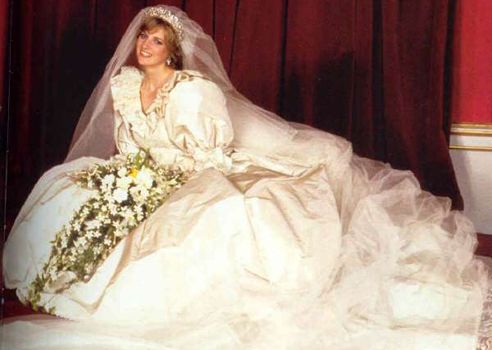Reading time: Less than 3 minutes
Do you suffer from the toxic combination of writing and perfectionism? If so, I suspect the heart of the issue may be your own grandiosity…
I’m not typically grandiose about my writing but I do have overblown, elaborate or pretentious moments in other parts of my life.
I’m thinking, for example, of the party last fall where I decided to make dessert for 60 people. Not only that, as part of the deal I made sure to give plenty of choice for the dairy-, nut- and gluten-intolerant. What was I trying to prove — sentencing myself to a week of fulltime baking?
Then there was the time, 20 years ago, when our triplet children were infants and we didn’t hire nearly enough help to give ourselves time to nap or sleep, never mind get anything else done. Yes, we survived, but it was like running a three-year marathon.
Here’s how the dictionary defines grandiose: pertaining to something or somebody imposing, impressive, magnificent; pompous and showy. (I think of the wedding of Diana, the Princess of Wales, shown above, when I hear this word.) Note the juxtaposition of positive terms — impressive, magnificent — with negative ones — pompous, showy.
Just like the word perfection, grandiose sounds almost pretty. It’s not until you think deeply that you discern the ugly. And when it comes to writing, high expectations can lead to your undoing.
Here are five ways in which grandiosity might damage your writing:
- Grandiose writers expect a perfect first draft. They look at the books on their shelves and imagine the text came out of the writers’ brains exactly that way. They don’t see the hours of rewriting the writer did. (Yes, even masters such as Alice Munro and Ian McEwan.) Nor are they aware of the many hours professional editors would have contributed, followed by even more hours of rewriting by the authors. When I worked in the daily newspaper business I had a particularly fine writer in my department and most us of thought he was a genius. Privately, however, he found this label demoralizing. He felt his colleagues failed to realize how much effort he put in. It wasn’t just talent; it was work.
- Grandiose writers give themselves punishing quotas. People in my Get It Done group, aimed at book and thesis writers, often want to start by writing 1,000 words per day. (They’re shocked when I tell them that even Hemingway wrote only 500 words per day.) Here’s the trouble: if you demand spectacular productivity you’re likely to fail and that’s going to make you feel bad about yourself. Not a good mindset for writing! The occasional burst of dramatic output is not what makes writers succeed. Instead, it’s day-in-day-out productivity.
- Grandiose writers don’t plan for enough time away from their desks. If you live in a cottage in the country, you need a full well to supply water for washing, drinking and cooking. To write, you also need a full well. For wordsmiths this means allowing the time to read books, see movies, go for walks, listen to music, talk to friends. None of us writes in a vacuum. Our regular life experience is what fuels our writing. Have no life experience and you won’t have any fuel.
- Grandiose writers think they need more discipline. “If I can only force my butt into my chair, I’ll get this report written in two hours,” they say. But imagine your inner writer as a five-year-old. Is it going to respond well to being threatened, spanked or belittled? (If you’ve had children, did your own kids ever respond positively to this?) Instead of discipline, most writers need better problem-solving skills. Your failure to write isn’t about not being tough enough, it’s about something else. Perhaps you don’t have enough information yet. Or perhaps you’ve given yourself a quota that’s too punishing. Instead of beating yourself up, think about what it will take to motivate you to write.
- Grandiose writers expect immediate success. Smart writers know that success never comes overnight; it arrives only after you’ve developed some skills. No one expects to play the piano well in less than about 10 years. (I’m in year three of my piano odyssey.) But give most writers that news and they’ll shake their heads at you. Ten years? That seems like a lifetime!
Writing is not about grandiosity. It’s far more mundane. It’s about writing a crappy first draft. It’s about putting in a small amount of work every day. It’s about having a life. It’s about being firm but gentle with yourself and asking smart questions when you fail to work. It’s about taking the time to develop your skills.
Sounds rather boring, doesn’t it? But I like the way advice columnist Ann Landers put it: “Opportunities are usually disguised as hard work, so most people don’t recognize them.”
P.S. My new website site is now “responsive,” meaning it works on a wide range of devices including cellphones. Apologies for the delay in getting this feature operating.
How are you grandiose in your writing? We can all help each other so please share your thoughts with my readers and me, below. If you comment by Jan. 31/15 I’ll put your name in a draw for a no-charge copy of the non-fiction book, Writing in Bullets by Kim Long. To see the comments box, scroll directly below.


